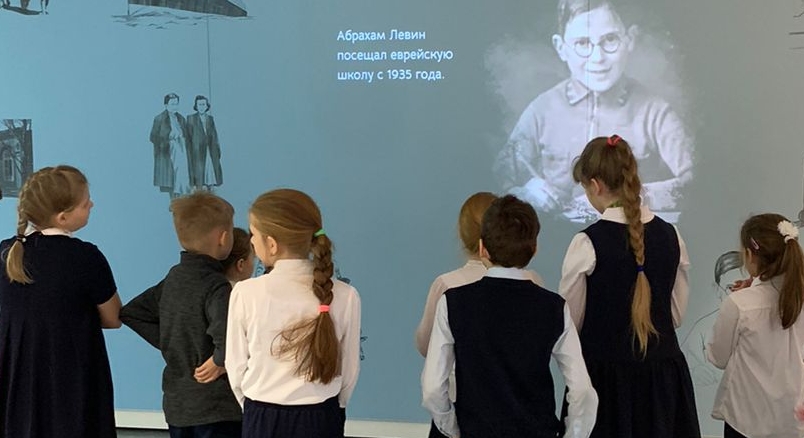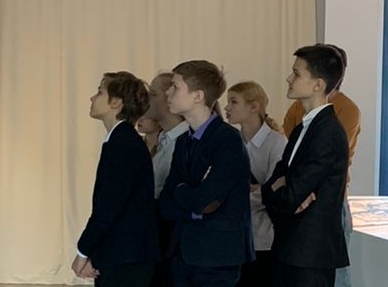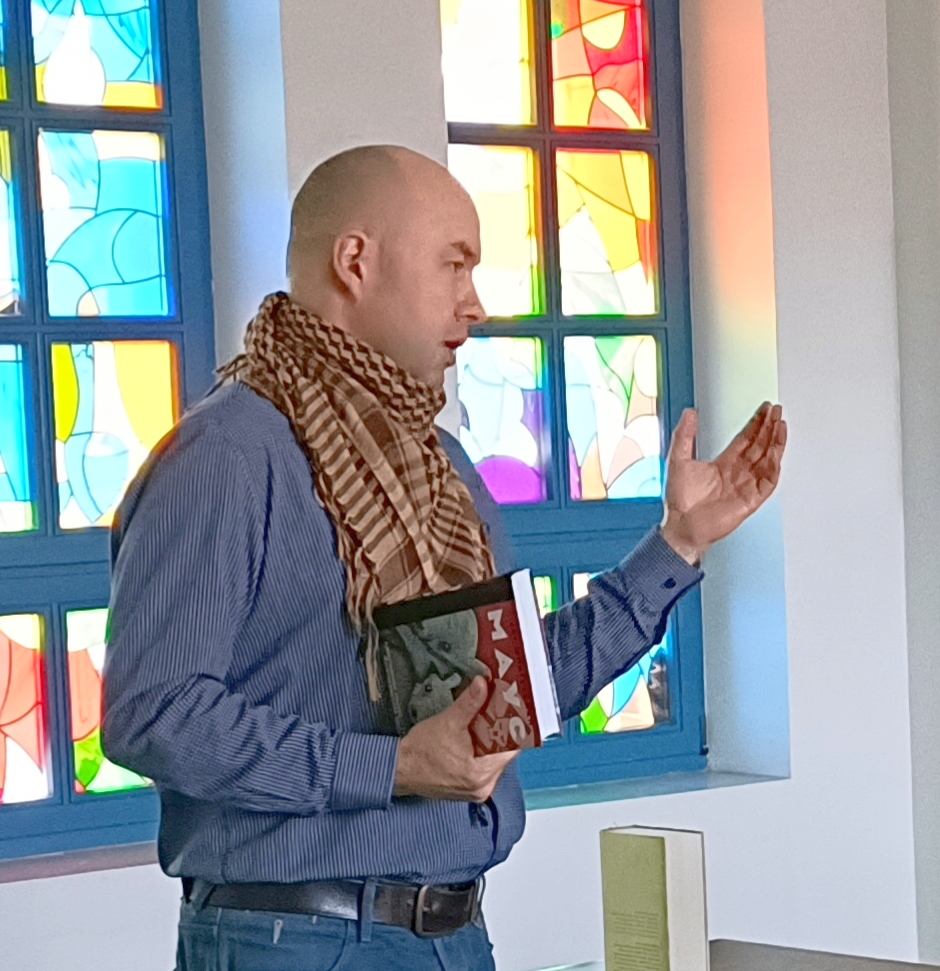
“Remembrance Week 2024” at the Museum of the New Synagogue
In Russia, an annual Holocaust Remembrance Week has been held in recent years, which has developed around the International Day of Commemoration in Memory of the Victims of the Holocaust, January 27, which is celebrated in many countries around the world.
This single day of remembrance has developed into a series of events in Russia.
This year, the “Museum New Synagogue Kaliningrad” presented an extensive program for groups of different ages, with a particular focus on school classes and the younger generation.



13 school classes visited the museum as part of extracurricular activities, two school groups came especially for the opening of the new traveling exhibition “Holocaust: Extermination, Resistance, Rescue” by the Moscow Holocaust Center on January 11 and for the opening of the week of remembrance. This special exhibition complements the museum’s main exhibition and reports on wartime and the Holocaust in the USSR and Russia, on the Nazis’ crimes against humanity in our country.



On the first evening, January 11, there was a meeting with Boris Arenberg, a former prisoner of the Kharkov ghetto, who had come to Kaliningrad especially to talk about his childhood in the ghetto at the tractor factory. Miraculously, his mother managed to save him from the final liquidation of the ghetto.



Nikolai Perkusov, cultural historian and local historian from Kaliningrad, gave two lectures on graphic novels and works of world culture – the conversion of Anne Frank’s diary into a graphic novel and Art Spiegelman’s Pulitzer Prize-winning novel “Maus”. These two works are literary milestones that have once again sharpened readers’ perception of the Holocaust due to their new perspective.


At the end of the week of remembrance in Kaliningrad, the “March for Life” traditionally takes place every year in the village of Yantarny to commemorate the death march that took place in this region at the end of the war – in January 1945 – when several thousand Jewish prisoners were murdered on the Baltic coast.

Yoav Lester, a descendant of survivor Eva Nagler, who had traveled all the way from Israel, took part in this year’s “March for Life”. Eva Nagler is one of 13 survivors who have written a book with their memories of the Palmnicken massacre. Her sister Sonia Schach, who perished in Palmnicken, was recently honored with a memorial plaque at the site of the massacre.
Every year, the “March for Life” at the end of January attracts more and more public attention. Nowadays, not only the Jewish community, but also the administration, public figures, schoolchildren and students as well as representatives of other confessions gather to honor the memory of the murdered Jews.


